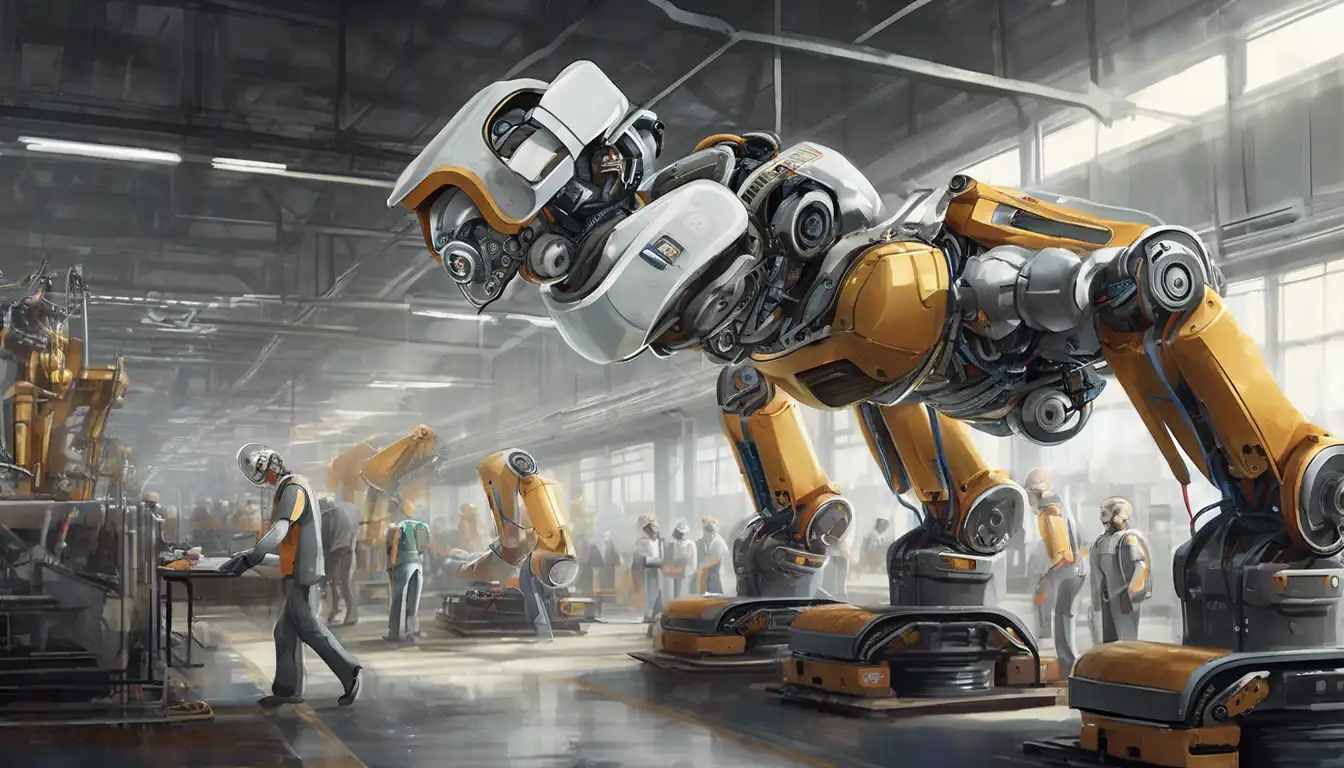The Revolutionary Impact of Robotics on Modern Manufacturing
In the heart of the industrial revolution, the introduction of robotics into manufacturing processes has marked a pivotal shift towards efficiency, precision, and scalability. This transformation is not just about replacing human labor but enhancing capabilities, reducing errors, and opening new avenues for innovation.
Enhancing Production Efficiency
Robotics technology has significantly increased production rates by automating repetitive tasks, allowing for 24/7 manufacturing cycles without fatigue. This leap in efficiency not only boosts output but also ensures consistent quality, a critical factor in today's competitive market.
Reducing Operational Costs
While the initial investment in robotics may be substantial, the long-term savings are undeniable. Reduced labor costs, minimized waste, and lower energy consumption contribute to a healthier bottom line for manufacturers embracing this technology.
Improving Workplace Safety
Robots are now handling hazardous tasks, from welding to handling toxic materials, significantly reducing workplace injuries. This not only protects employees but also decreases liability and insurance costs for businesses.
Driving Innovation and Customization
The flexibility of robotic systems allows for rapid reconfiguration to accommodate new products or changes in design, enabling manufacturers to respond swiftly to market demands. This agility fosters innovation and paves the way for mass customization, a trend gaining momentum across industries.
Challenges and Considerations
Despite the benefits, integrating robotics into manufacturing is not without challenges. The need for skilled personnel to operate and maintain these systems is growing, highlighting the importance of training and education in the workforce. Additionally, concerns over job displacement require thoughtful strategies to balance automation with employment opportunities.
As we look to the future, the role of robotics in manufacturing is set to expand, driven by advancements in artificial intelligence and machine learning. These technologies promise even greater efficiencies, smarter production lines, and the continued transformation of the manufacturing landscape.
For those interested in exploring how automation is reshaping industries, read more about the latest trends in automation.
